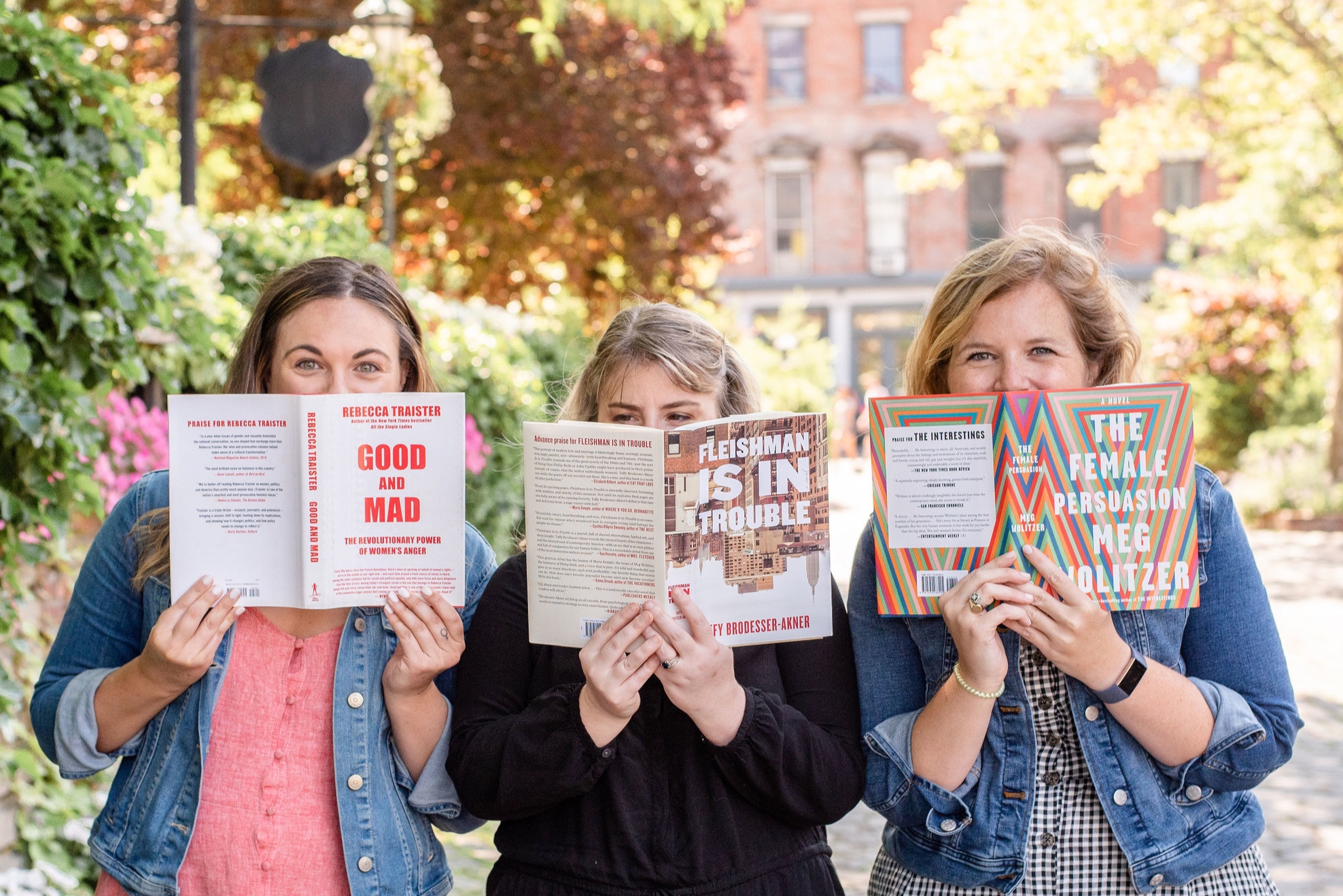Book Review: "Burnout" by Emily and Amelia Nagoski
“Burnout” by Emily Nagoski, PhD and Amelia Nagoski, DMA
Publisher Synopsis: Burnout. Many women in America have experienced it. What’s expected of women and what it’s really like to be a woman in today’s world are two very different things—and women exhaust themselves trying to close the gap between them. How can you “love your body” when every magazine cover has ten diet tips for becoming “your best self”? How do you “lean in” at work when you’re already operating at 110 percent and aren’t recognized for it? How can you live happily and healthily in a sexist world that is constantly telling you you’re too fat, too needy, too noisy, and too selfish?
Sisters Emily Nagoski, PhD, and Amelia Nagoski, DMA, are here to help end the cycle of feeling overwhelmed and exhausted. Instead of asking us to ignore the very real obstacles and societal pressures that stand between women and well-being, they explain with compassion and optimism what we’re up against—and show us how to fight back. In these pages you’ll learn
• what you can do to complete the biological stress cycle—and return your body to a state of relaxation
• how to manage the “monitor” in your brain that regulates the emotion of frustration
• how the Bikini Industrial Complex makes it difficult for women to love their bodies—and how to defend yourself against it
• why rest, human connection, and befriending your inner critic are keys to recovering and preventing burnout
With the help of eye-opening science, prescriptive advice, and helpful worksheets and exercises, all women will find something transformative in these pages—and will be empowered to create positive change. Emily and Amelia aren’t here to preach the broad platitudes of expensive self-care or insist that we strive for the impossible goal of “having it all.” Instead, they tell us that we are enough, just as we are—and that wellness, true wellness, is within our reach.—Penguin Random House
Rating (out of 5 stars): 4
Review: This past December, my aunt and I were talking about all the times we had woken up in a cold sweat at three in the morning, in a literal panic about something we had said to someone five years ago that they may have misinterpreted. My brothers in law looked at us as though we had just landed from Mars. I understand that anxiety is not restricted to women, believe me, but the desire to fold yourself into a socially acceptable, pretty, well-groomed version of the hairy, fat, fanged, socially awkward monster you know yourself to truly be seems to be way more common in women. This is why there are Brazilian bikini waxes. Thank you for coming to my Ted Talk, please click subscribe below.
It might be clear from the above paragraph that I need a lot of help, and surprise! my therapist recommended this book to me. I loved Emily Nagoski’s first book, and was eager to pick this one up. My issue with a lot of self-help is that it is by its nature individualistic, and so many of the problems that seriously trouble us are societal. I could go on about how “Girl, Wash Your Face,” loved by so many MLM huns, has a damaging message to women, but I won’t because people smarter than I already have. The Nagoski twins (!) spend a lot of time focusing on the fact that the cause for our problems and insecurities is societal, the true solution is larger than any of us, but there are tools to use to combat the way the patriarchy grinds us all down.
“Burnout” tells us about “human giver syndrome,” which requires women to be “pretty, happy, calm, generous, and attentive to the needs of others” in order to let men live their full lives. Happy to keep his dinner warm, and all that. The result of this is women being trapped in a cycle of toxic stress—even if you remove the stressor, the stress doesn’t necessarily abate. There’s an abundance of practical advice to ending the stress cycle, which I loved—if you’re going to name the problem, help me with a solution!
Throughout the book, the idea that the problem is external—that society forces women into unrealistic molds, is emphasized. This is so necessary and so lacking in so much other self-help. Likely my favorite takeaway was the concept of the “monitor,” or the voice in your head detailing your inadequacies (to quote a trope, I thought it was only me!). Strategies for practicing self-compassion in the face of your critic are explored.
The only thing that I don’t love about the book is the use of composite individuals in narratives at the beginning of sections. I understand their purpose, I just didn’t find it particularly effective in every instance it was used.
Overall, this is a useful addition to your library, and worth revisiting when you can’t seem to get out of a rut.
TL; DR: Emily Nagoski writes self-help for people who are skeptical about self-help. The core message, about escaping from the specific types of toxic stress that are pervasive among women, is really important. I don’t love everything about the format of the book, but you should pick it up, and you might feel a little better.
If you liked this, you might consider this, too



